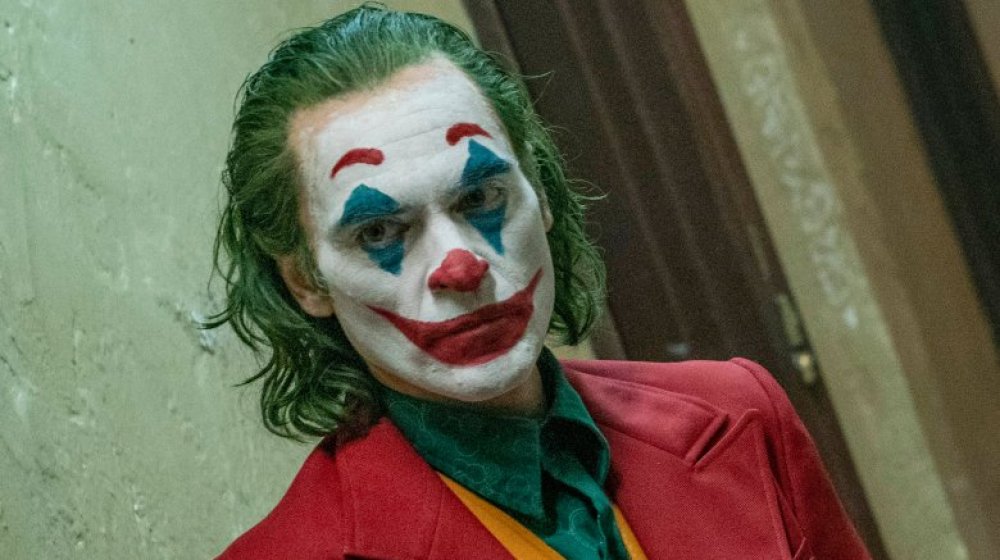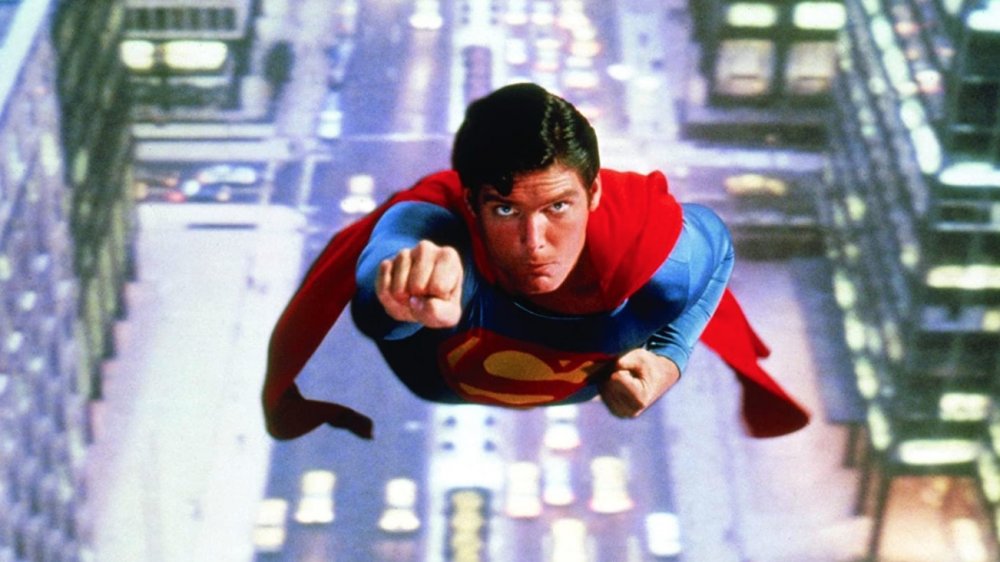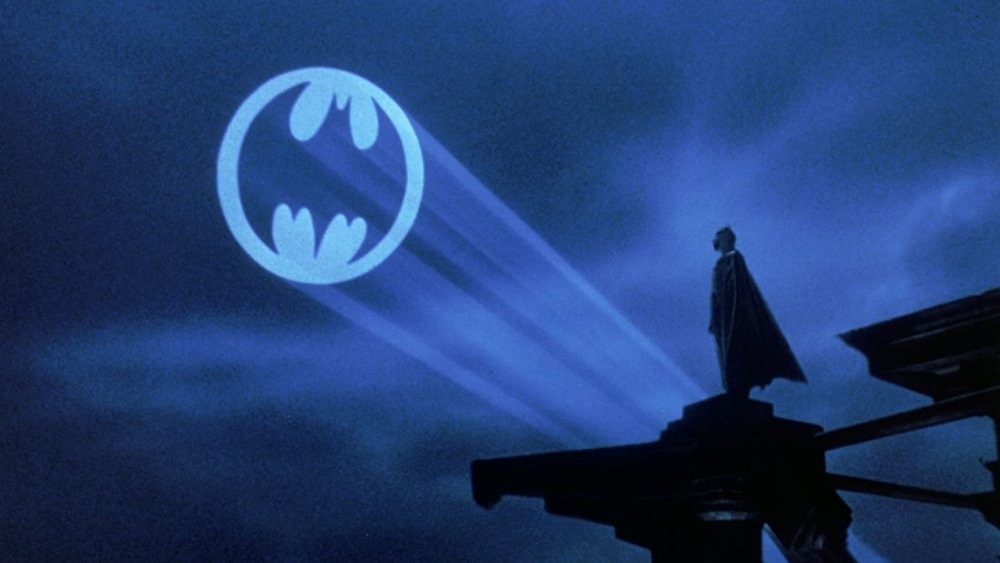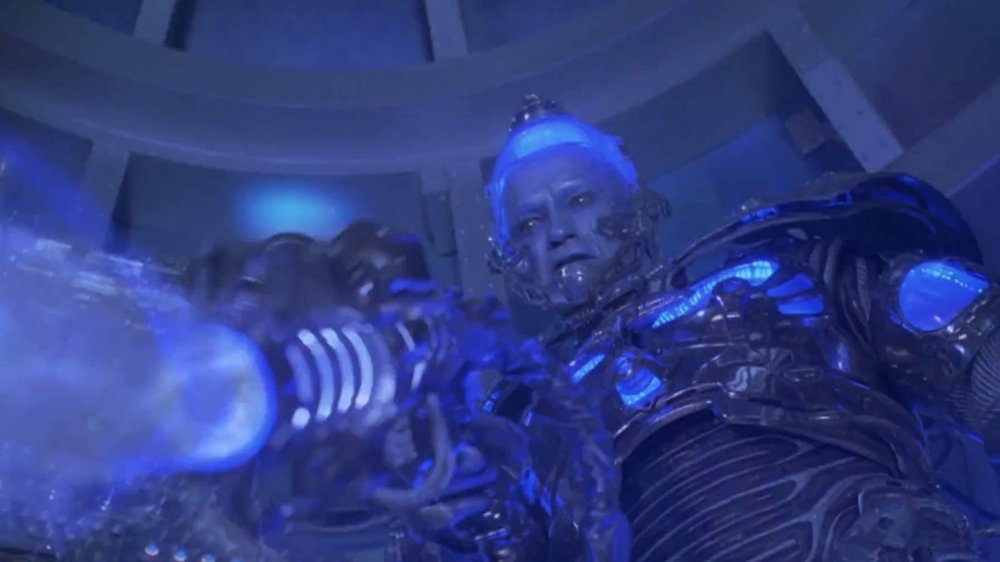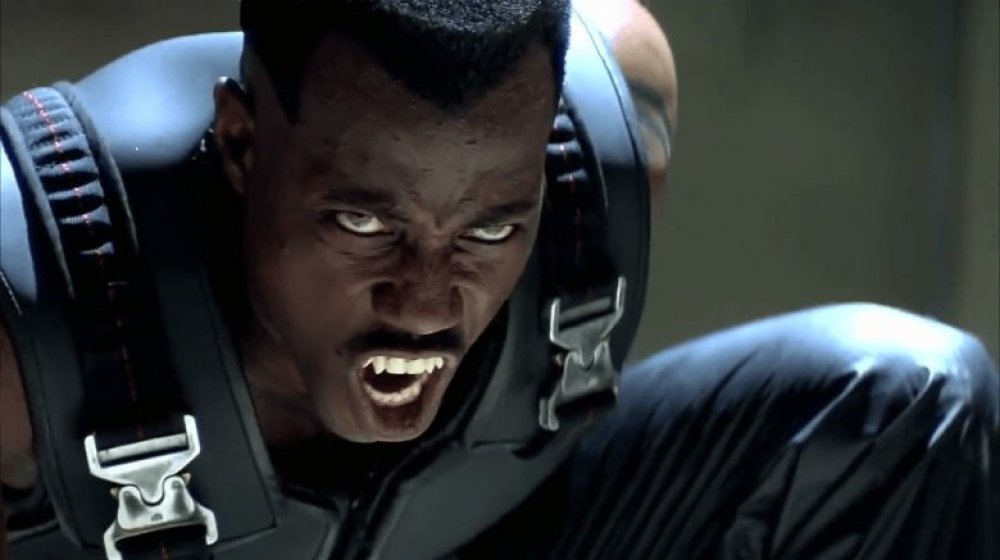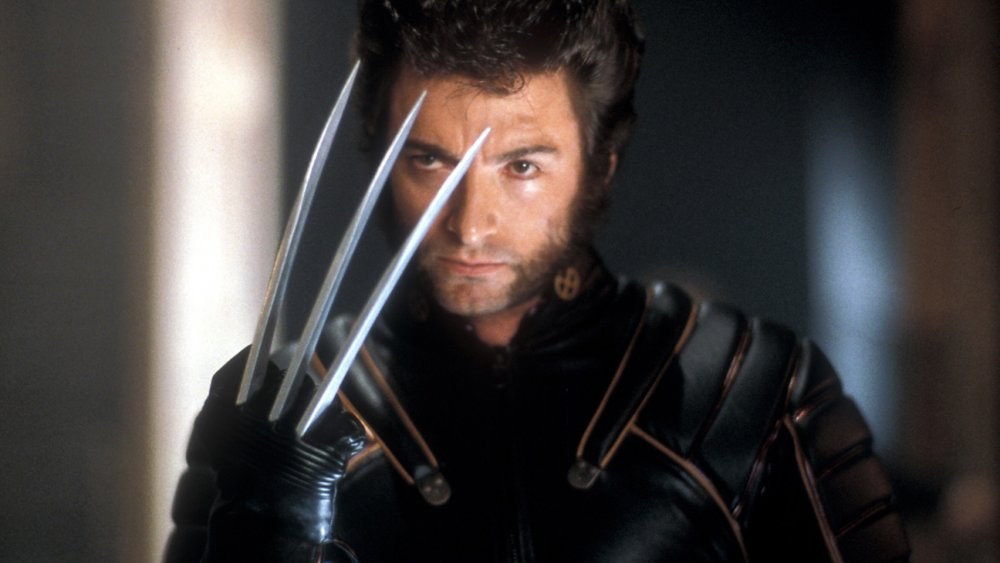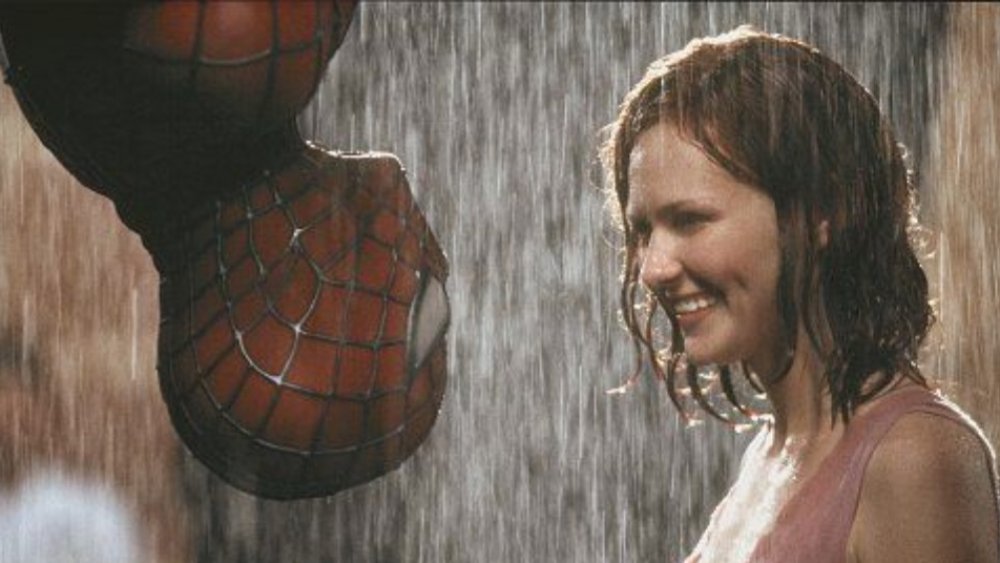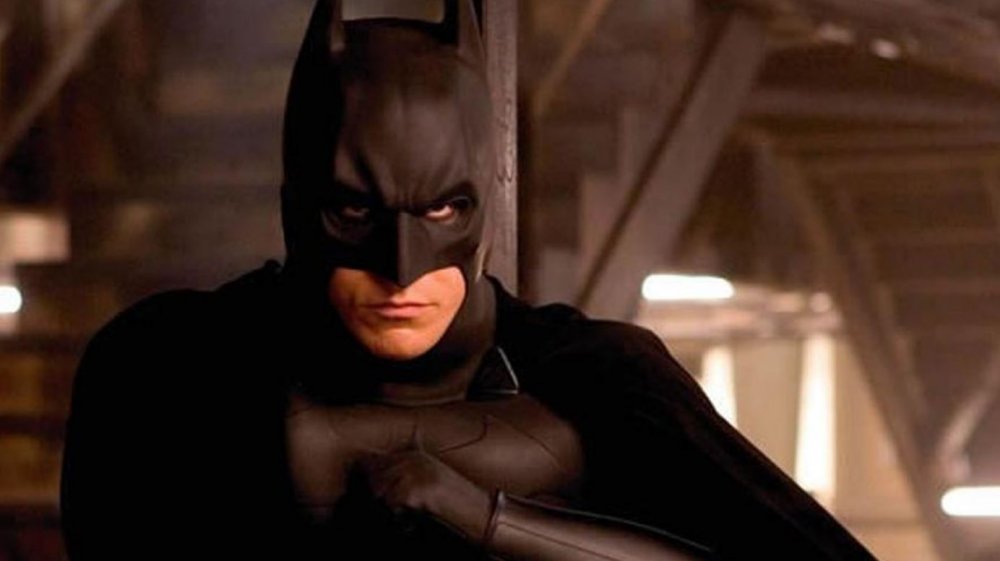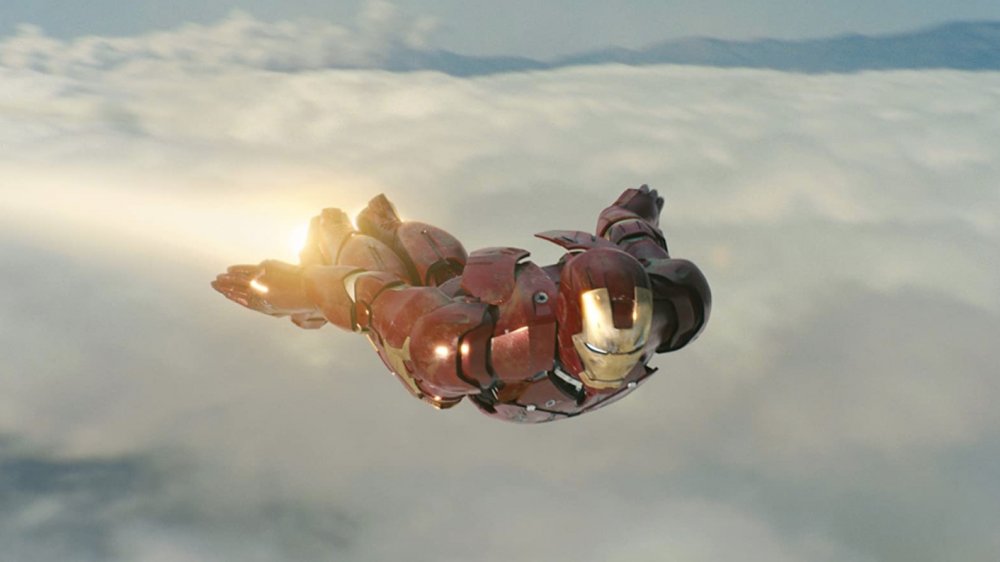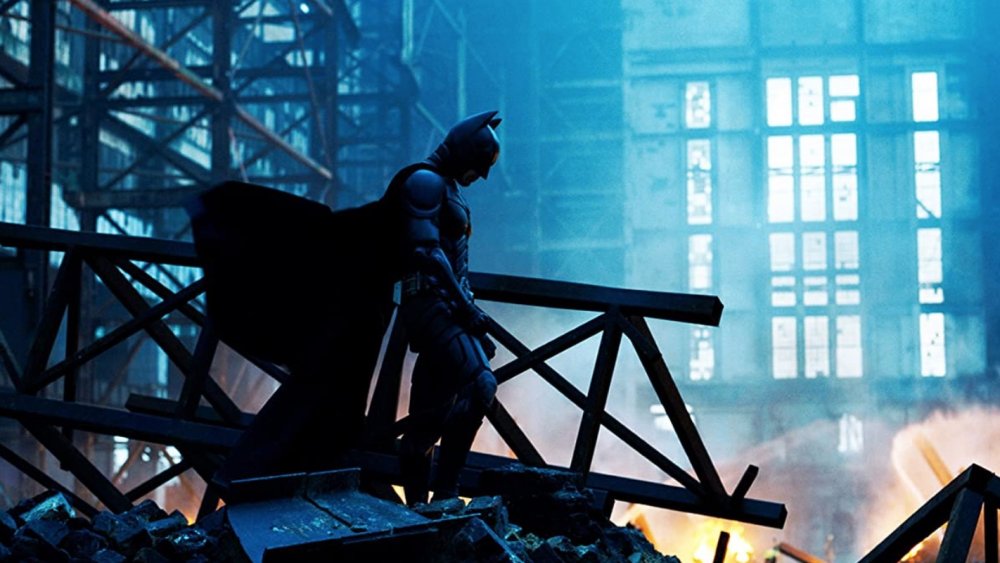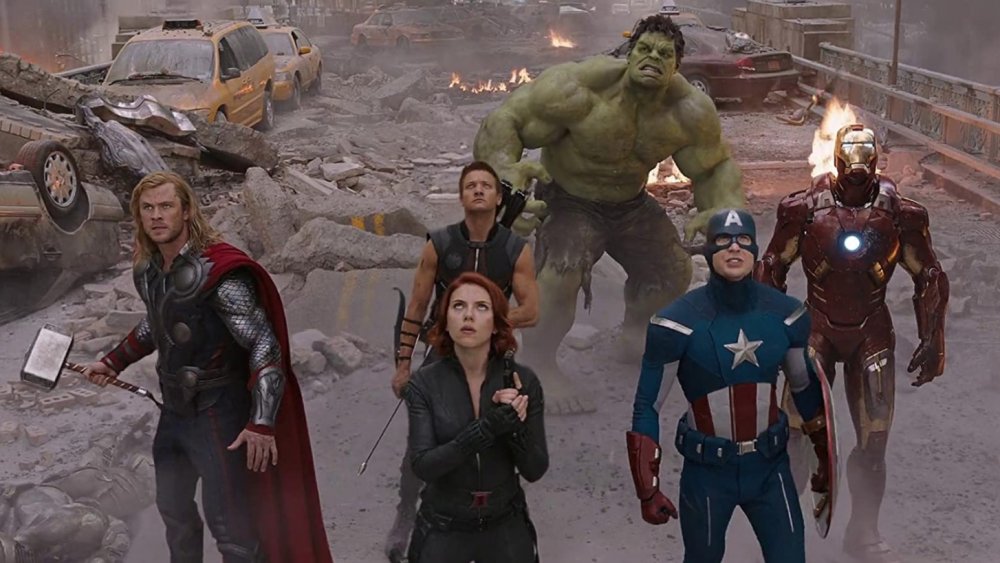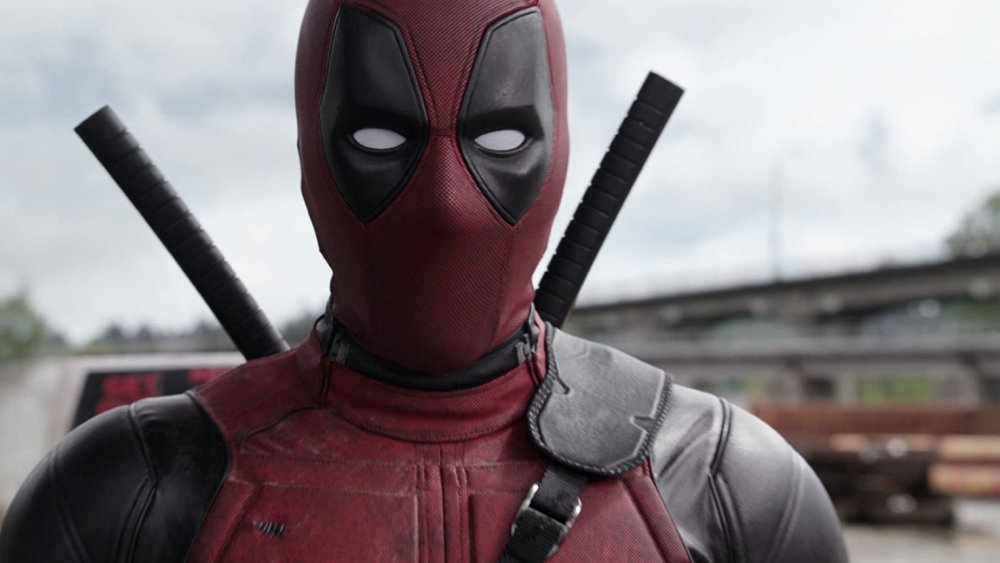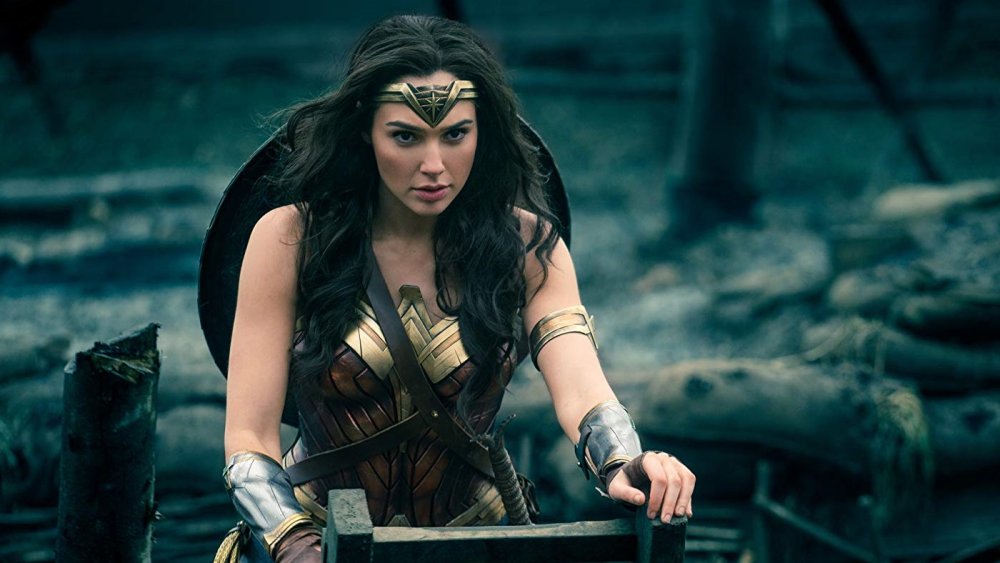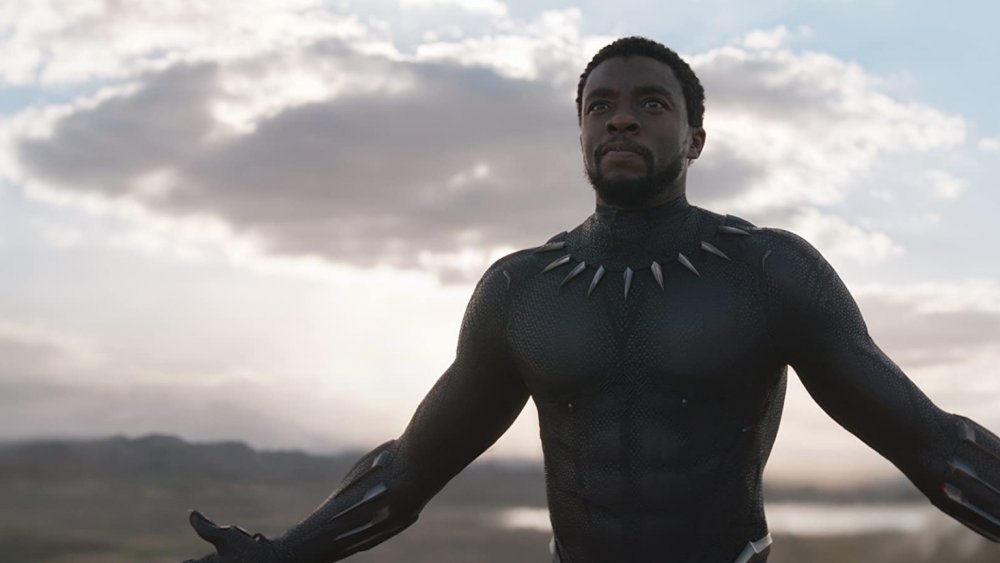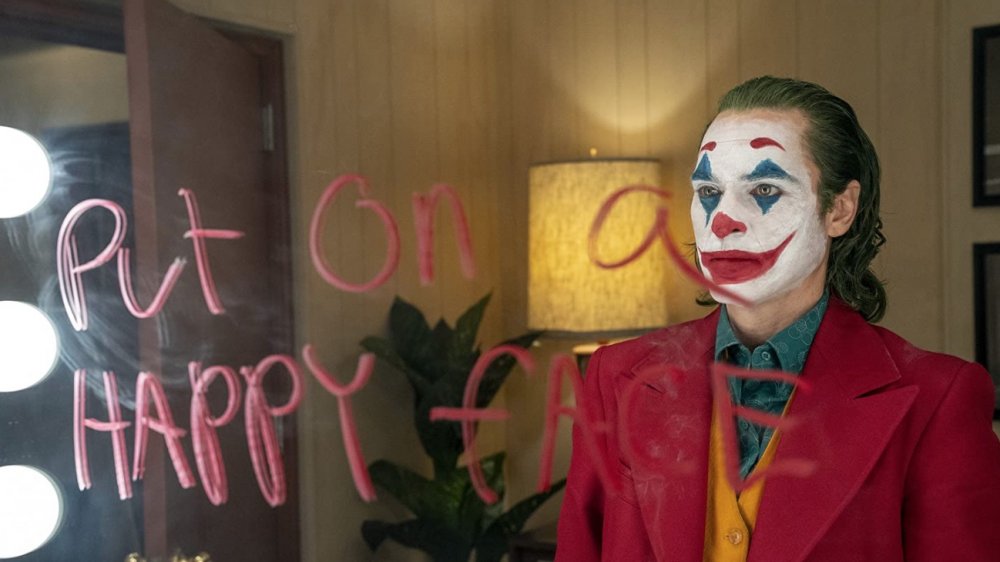The Most Influential Superhero Movies Of All Time
Superhero movies rule the world, but it wasn't always this way. Hard as it is to believe now, there was a time when the cinematic adventures of costume-clad crusaders was a rare treat. Seriously, if it wasn't Superman or Batman, good luck seeing a superhero story on anything but a Saturday morning cartoon show or on the pulpy pages of your favorite comic book. Sure, there were many attempts to bring some of our favorite spandex-wearing saviors to the silver screen, but most never made it past the planning stages. Basically, for two decades, all comic book movie fans had was the Christopher Reeve Superman series and the Burton/Schumacher Batman franchise, and even those films only came out every three years — and then we lost them too! It was pretty bleak.
But just like any great superhero, the genre came back from certain defeat to win the day. Now that superhero movies have conquered Hollywood, we're going to look back on the most influential films in the genre. Some are classics from decades past, while several are recent hits that have taken the genre into exciting new directions. Not all of them are good, but all of them are important. Consider this list the origin story for where the superhero movie genre is today, and where it's going in the future. Here are the most influential superhero movies of all time!
Superman: The Movie made us believe a man could fly
"You'll believe a man can fly." With six simple words, Superman: The Movie summed up the childlike sense of wonder the Man of Steel's fans have had for their favorite superhero ever since he first hoisted a car above his head in 1938's Action Comics #1. It makes sense the first major superhero movie featured the Man of Tomorrow. Superman has been featured everywhere in his eight-decade history. He was so popular that there was even a "Superman Day" at the New York World's Fair in 1940. That's incredible, but hey, so is Superman. Superman is the greatest superhero not because he's the most relatable or compelling or even because he has the best powers. He's the best because he embodies his character type — the superhero — in the same way characters like Mickey Mouse, Sherlock Holmes, and Godzilla embody theirs.
Richard Donner, Christopher Reeve, and company understood this, and their film isn't a special effects-drenched spectacle (although it did win a Special Achievement Oscar for Best Visual Effects) or a self-important, postmodern genre deconstruction. It's a charming, swashbuckling, adventure film that makes you feel like a little kid thumbing through the pages of a Superman comic book. Considering it came out in the nihilistic New Hollywood of the 1970s that's saying something, especially since every other Superman franchise has failed to match it's pitch-perfect tone. Critics believed a man could fly and movie goers did too, sending Superman: The Movie up, up, and away with $300 million global gross, which was huge in 1978.
Warner Bros. made bank by bringing Batman back to his Dark Knight roots
Batman's journey to the big screen is a saga that's almost as compelling as the Caped Crusader. Early efforts to make a Batman movie went in some pretty strange directions, most notably a feature starring Bill Murray as the Dark Knight, with Eddie Murphy as the Boy Wonder, Robin, which sounds crazy to think about it now (and actually kinda' brilliant).
However, while comic book fans were used to a "dark" Dark Knight, mainstream moviegoers in the 1980s still saw Batman as the "zip, zap, zow!" kitschy crimefighter from the 1960s TV show starring Adam West. And when Tim Burton got the gig following his success directing quirky comedies Pee Wee's Big Adventure and Beetlejuice, it seemed to indicate this Batman would be more slapstick than serious. Burton did little to dispel those worries when he cast Michael Keaton, most famous for his funny roles in Night Shift and Mr. Mom, leaving fans fearful this would be a comedic Caped Crusader.
But Warner Brothers put fan's fears back in the Batcave with a brilliant marketing campaign highlighted by Batman's iconic yellow insignia. No words needed. The subtle approach paid off big time when Batman broke the opening weekend box office record and launched a $6 billion franchise. Batman changed the game for superhero movies and summer blockbusters. While the superhero movie renaissance was still a decade away, there was no turning the Batmobile back.
Batman & Robin put the Batman series on ice
The worst movie on this list may be the most significant. The Batman franchise had been riding high since '89, breaking the opening weekend record three times, a feat matched in the modern era only by Jurassic Park and The Avengers. For comic book fans, the Bat-Signal was the lone bright spot in an otherwise dark night for superhero cinema. While the 1990s saw an explosion of movies based on obscure comic book characters — The Phantom, The Shadow, and The Mask — there were no movies featuring the biggies like Spider-Man, Wonder Woman, the X-Men, or Superman. Superhero fans were woefully undernourished except for Batman ... and then Batman & Robin happened.
Batman & Robin came out when internet movie culture was in its infancy, and the new medium came of age with this turkey. Along with Godzilla '98 and Wild Wild West, you could argue no movie has had more people tear it apart online for as long as Batman & Robin has. However, it's still really influential. Batman & Robin was made solely to sell tickets, toys, and Happy Meals, like most blockbusters of that era. All your movie needed was big-budget SFX, a movie star worth over $20 million (looking at you, Arnold Schwarzenegger), and lots of vehicles to make toys from. But the movie only made $238 million worldwide against a production budget of $125 million. Batman & Robin's critical and commercial downfall forced Hollywood to change course with blockbuster cinema. Quality mattered. If Batman & Robin didn't bomb, the superhero movie renaissance would've turned out much differently and maybe much worse.
Blade cuts through DC's two decades of dominance
The Marvel Cinematic Universe is the most successful franchise ever, with a combined box office gross of $22.5 billion. Yet there was a time when Marvel being successful seemed improbable, if not downright laughable. While Marvel found success with Saturday morning cartoon shows and merchandising, it mostly spent the 1980s and 1990s sitting on the sidelines while rival DC Comics made truckloads with just Superman and Batman movies. The only films featuring Marvel characters were the critical and commercial disaster Howard the Duck in 1986 and a Fantastic Four film from 1994 that was so atrocious it was never even released. Things looked Ben Grimm when Marvel filed for Chapter 11 bankruptcy in 1996 after the comic book industry collapsed and was forced to sell off its most bankable characters. But bankruptcy turned out to be a blessing, as one of those characters was about to make it big in Hollywood.
In the midst of Marvel's meltdown came its first successful big-screen movie. It didn't feature Spider-Man, X-Men, or the Hulk, but instead, the half-human, half-vampire Blade. Released in 1998, one year after Batman & Robin seemingly killed off comic book movies in an explosion of neon-coated nonsense, Blade was an action-packed, blood-soaked, R-rated, splatterfest. Fans ate it up. Blade made $70 million domestically and $131 million worldwide, less than what Spider-Man would make in just a week four years later, but that didn't matter. Blade was Marvel's first big-screen hit, and it signaled a new era in superhero movies was about to begin.
X-Men marks the spot for Marvel's major comeback
Since the 1930s comic book superheroes followed a pretty routine "_____ Man" and "_____ Woman" format. And most importantly, superheroes were almost always treated with reverence by regular human characters. That all changed in 1963 when Stan Lee and Jack Kirby had the brilliant realization that super-powered people would probably be treated with fear and scorn. Marvel's dynamic creative duo created the X-Men as a result, using costumed heroes as stand-ins for the civil rights movement taking place at the time. While X-Men underperformed in the 1960s and was discontinued except for reprints in 1970, it exploded in popularity following Chris Claremont and John Byrne's historic run on the series.
Following the enormous success of the 1990s animated series on FOX, the X-Men became the first major Marvel characters to receive the big-screen treatment. The road was often rocky. While Patrick Stewart was a no-brainer for Professor Charles Xavier, the pivotal role of Wolverine went to an unknown Australian Broadway star Hugh Jackman after the studio's original choice, Dougray Scott, got hurt filming Mission: Impossible II. Fox gave the film a modest $75 million budget, a prudent investment given this was just a few years after Batman & Robin bombed. X-Men made back three times its budget, earning $157 million domestically and $296 million worldwide, launching a franchise that's earned $6 billion worldwide across 13 films. Most significantly, it was Marvel's first major big-screen blockbuster after decades of false starts.
Spider-Man swings into history
Blade proved Marvel movies could make money, while X-Men showed they could be blockbusters. Then Spider-Man showed Marvel movies could break records like no franchise before or since.
Younger moviegoers who've been born and raised on Spider-Man movies won't be able to understand just how anticipated the wall-crawler's first big-screen adventure was. Fans had literally waited decades for Spider-Man to join the hallowed ranks of cinematic stardom alongside the other "Mount Rushmore superheroes," Batman and Superman. Spidey had numerous starts and stops on his way to the big screen, including failed productions from famed schlockmeister Roger Corman and even James Cameron. Sam Raimi finally got the gig, and the fanboy favorite creator of the Evil Dead franchise proved his bona fides by casting Tobey Maguire instead of the pretty boys the studio desired.
Sony Pictures figured they had a hit on their hands, but they had no idea the pop culture milestone they were about to release on the world. Spider-Man opened in 2002 to $114 million, breaking the opening weekend record and swinging into the record books as the first movie to open above $100 million. Spider-Man finished its run with $403 million domestically and $821 million worldwide, launching ten films about the web-slinger that have pulled in $7.2 billion and putting Marvel firmly in the top spot after decades in DC's shadow.
Batman Begins begins something special
Comic book movies were back in a big way in the early 2000s, with big-screen adaptations of Spider-Man, Hulk, Daredevil, and even Hellboy. So naturally, Warner Brothers wanted to bring back Batman — arguably the most popular character ever — after eight years in exile following Batman & Robin's failure. There were numerous attempts to revive the Batman franchise, including an adaptation of Batman: Year One from Darren Aronofsky, a Batman Beyond movie, and even a Batman vs. Superman movie 12 years before Zack Snyder's version, this one from Wolfgang Petersen.
Thankfully, Warner Bros. never greenlit the Bat-Signal for any of these. Batman's cinematic salvation came from an unlikely source, a well-respected indie director named Christopher Nolan whose combined domestic gross was less than $100 million at the time. But the suits at Warners were impressed with Nolan's pitch. Nolan didn't want to make a sequel or remake of the Gothic nature of Tim Burton or the Bat-nippled balderdash of Joel Schumacher from the previous series. He wanted to reboot Batman's origin story with a movie that was grim, gritty, and realistic.
To Warner Brothers' credit, the studio knew they overhyped the previous series, and so they used a more muted marketing campaign, a risky proposition during the competitive summer season. While Batman Begins had a soft $48 million opening (less than half of Spider-Man's 2002 opening), it legged it out to $206 million domestically and $373 million. Batman Begins brought the Caped Crusader back and changed Hollywood blockbuster filmmaking forever by launching the reboot revolution.
Iron Man launches the biggest franchise ever
Indiana Jones and the Kingdom of the Crystal Skull and The Dark Knight were the most anticipated movies of 2008, yet the summer movie season kicked off with the little Iron Man that could, a film that became one of the most influential superhero movies of all time. As excited as we were to see it, it's only with hindsight that we realize how significant Iron Man really was. There had been efforts to bring Iron Man to the big screen since the 1990s, with Tom Cruise attached to star. Yet by the time cameras finally started rolling on Iron Man, it wasn't the world's biggest movie star wearing the red-and-gold armor. It was a former high school dropout, drug addict, and ex-con who spent his two-decade career being labeled "box office poison" — Robert Downey Jr.
Still, there was no denying RDJ was talented, and his screen tests proved he was born to play Tony Stark. Iron Man exceeded all expectations when it opened to $102 million, eventually earning $318 million domestically and $585 million worldwide. The Iron Man franchise alone has made $2.4 billion worldwide across only three films, in addition to the character being a pivotal player in Captain America: Civil War, Spider-Man: Homecoming, and The Avengers series. We still get chills remembering that first post-credits scene where Samuel L. Jackson mentions "the Avengers Initiative." Yet none of it would have happened without Robert Downey Jr. saying, "I am Iron Man."
The Dark Knight may be the greatest superhero movie ever
Batman Begins brought Batman's credibility back, but while it earned a profitable $373 million on a $150 million budget, it wasn't a massive blockbuster — at least not by Batman movie standards. Everybody knew Batman could do better. And while Nolan is known as a "one movie at a time" filmmaker, he cleverly ended Batman Begins with a reference to the Joker, whetting fan's appetites for the sequels to come. The interwebs blew up when Heath Ledger won the role (shockingly, many folks weren't happy). But when we got our first glimpse of Ledger's Joker in action in the trailer before I Am Legend, fan's anticipation went into overdrive.
Finally, The Dark Knight opened to a record-breaking $158 million, ending its historic run with $535 million domestic (the highest since Titanic) and $1 billion worldwide, more than doubling Batman Begins' domestic and global grosses. The Dark Knight changed Hollywood in other ways, too. In The Dark Knight's wake, several blockbusters were forced to have a dark tone (Warner Brothers was even rumored to have a "no jokes" policy for its comic book movies), much to the DCEU's creative detriment. Perhaps even more impactful, The Dark Knight's snubbing for a Best Picture nomination famously forced the Academy Awards to expand the category to include popular films. However, justice was served on Oscar night when Heath Ledger won a posthumous Academy Award for Supporting Actor, then the highest honor ever awarded to a superhero film.
The Avengers assembled a new era in blockbuster films
We still get goosebumps watching Iron Man's post-credits scene, when Nick Fury tells Tony Stark about "the Avengers Initiative." And fans at the time were all like, "Did he just say the Avengers Initiative? As in, all of them?" Hard to believe it now, kids, but there was a time when a superhero crossover film seemed too good to be true. The closest we got was that one time when Batman mentioned Superman in Batman & Robin.
But after years spent in DC's shadow, Marvel was planning something groundbreaking. After making chump change from their previous big screen adaptations (Spider-Man made $3 billion from the box office, DVDs, and broadcast rights, but Marvel's take was only $62 million), the comics company went all in on Marvel Studios. Their mission? Produce movies for their non A-list roster (i.e. not Spider-Man or X-Men). Marvel's ultimate goal was a historic crossover production, The Avengers. It was ambitious and no way guaranteed. Iron Man was a blockbuster, but The Incredible Hulk bombed, while Thor and Captain America: The First Avenger made tidy profits. Summer 2012 was the moment of truth ... and The Avengers made $207 million its opening weekend, the first film ever to break $200 million in a single weekend, and was on its way to $623 million domestically and $1.5 billion worldwide.
Suddenly, cinematic universes were all the rage, and Marvel was the trendsetter. But perhaps Marvel's most impressive feat is they're still the only studio that has pulled crossovers off successfully.
Deadpool boldly reinvents a 16-year-old franchise
The X-Men franchise had gotten kinda' stale by 2016. The first trilogy ended with a creative whimper with X-Men: The Last Stand, the Wolverine spin-offs were inconsistent until Logan, and while the X-Men: First Class franchise was solid, it didn't stand out next to The Dark Knight trilogy and the MCU. After 16 years, moviegoers no longer got excited about X-Men movies. So how do you inject a dose of energy into your series? Fox decided on the Merc with the Mouth — Deadpool. However, you can tell that Fox felt Deadpool's box office prospects were modest at best, as they only gave the film a $58 million budget, less than any other film in the series. It was a safe play, as Deadpool was hard R, ultra-violent, and featured a character whose only mainstream presence was a brief appearance in X-Men Origins: Wolverine.
Still, Deadpool looked different, and that Valentine's Day, Fox got the best gift of all when the film opened to $132 million, making it not only the highest in the X-Men franchise but the highest R-rated opening weekend ever. Unlike the other front-loaded X-Men films, Deadpool had legs, earning $363 million domestic and $785 million worldwide, making it the second-biggest hit in the X-Men series (after Deadpool 2's $786 million). With many moviegoers suffering from "superhero fatigue," Deadpool was the meta-superhero movie we needed, and it wasn't afraid to mock its genre. Most importantly, it proved a fresh, original superhero movie could still win big at the box office.
All the world was waiting on Wonder Woman
Wonder Woman was created in 1941, was featured in one of the 1970s most popular TV shows, and belongs on the "Mount Rushmore of Superheroes" alongside Batman, Superman, and Spider-Man. Yet despite decades of bungled efforts to bring Princess Diana of Themyscira's story to the big screen (Sandra Bullock, Catherine Zeta-Jones, Megan Fox, and Beyonce Knowles were all considered to don the silver bracelets), none panned out. At one point, Buffy: The Vampire Slayer creator Joss Whedon took a crack at it and had Wonder Woman playing second fiddle to Steve Trevor in her own movie, while inserting an overt anti-corporate message into the script ... despite getting paid $3 million by a giant corporation to write it.
Wonder Woman finally made her big screen debut in Batman v Superman: Dawn of Justice in 2016 as a major supporting character. Director Zack Snyder didn't go with a movie star, instead casting Israeli model turned action star Gal Gadot, who previously had small roles in the Fast & The Furious franchise. Much like Christopher Reeve as Superman, Gal Gadot didn't have to deal with the movie star baggage and truly embodied the character. Finally, in 2017, Wonder Woman got her own movie, opening to $103 million and earning $412 million domestically and $821 million worldwide. Wonder Woman made history as the first female-fronted superhero blockbuster (Catwoman and Elektra came out first but tanked) and by also bringing one of the greatest comic book characters to life on the big screen.
Black Panther earns green, wins gold, and makes history
The highest-grossing solo superhero movie doesn't feature the usual suspects like Superman, Batman, Spider-Man, Iron Man, or Wonder Woman, but instead, it stars a character who ten years ago wasn't on most moviegoer's radar — Black Panther. But then again, King T'Challa has always been great at hiding out in Wakanda. However, Black Panther was actually the second major attempt to bring T'Challa into multiplexes.
Before breaking ground as vampire-hunter Blade, Wesley Snipes tried to bring Black Panther to the big screen in the mid-1990s, but he had his dreams dashed when Marvel filed for Chapter 11 bankruptcy in 1996. Black Panther made his big-screen debut as a major supporting character in 2016's Captain America: Civil War, joining Team Tony to take on Captain America's crew (before realizing he'd been duped by Zemo ... long story). Black Panther's solo debut was released in 2018, and while Marvel was expecting a hit comparable to their other non-Avengers adventures, they were blown away when Black Panther opened to $202 million, the biggest-opening weekend for a solo superhero movie ever.
Black Panther went on to gross $700 million domestically and $1.3 billion worldwide, the biggest non-Avengers hit in the Marvel Cinematic Universe ... and superhero movies in general. While Blade was the first successful superhero movie starring an African-American actor, Black Panther was the first with a majority black cast. It also broke ground at the Oscars, becoming the first superhero movie to be nominated for Best Picture, and it won awards for Best Production Design, Best Costume Design, and Best Original Score.
Joker takes superhero cinema in a shocking new direction
Since superhero movies went mainstream with Superman: The Movie in 1978, we've seen many different tones and characters, but they've all been recognizable as "superhero movies." Good guy, bad guy, wash-rinse-repeat. Joker is different. It's the first blockbuster superhero movie that's not a superhero movie at all. Yes, the Joker is one of the most famous comic book characters — and one of the most famous villains period — but Joker doesn't belong in the same category as The Avengers or even The Dark Knight. Joker has more in common with the nihilistic New Hollywood movies of the 1970s it's inspired by, especially Taxi Driver. It's set in a society like our own, and it tackles point blank how we deal with people suffering from mental health issues who are prone to violence, using a famous comic book character to make its case.
Joker did what no superhero movie ever has when it won the Golden Lion at the Venice Film Festival, putting it in the same conversation as Rashomon, Brokeback Mountain, and Roma. Joker's violence dominated the cultural conversation before its release, leading to a $335 million domestic and $1 billion worldwide gross on a $55 million budget, making it the most profitable superhero movie ever. Joker was nominated for Best Picture and won Best Actor for Joaquin Phoenix, and most significantly, it took superhero movies in a shocking, exciting new direction, and we can't wait to see where they go next.
